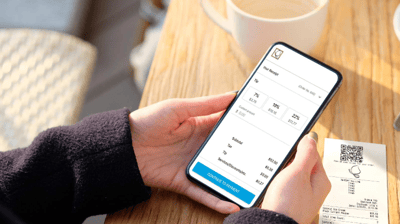Call Sales: +1 (833) 437-3835
Call Sales: +1 (833) 437-3835
Carl Jacobs | February 4, 2022 |

Digital transformation in the hospitality industry went from buzzword to necessity in the space of a few months. According to a survey by McKinsey, the Covid-19 crisis accelerated the digitization of interactions with customers and the supply chain by three to four years. Rules on social distance, home confinement, and safety requirements created the need for contactless digital interactions like never before.
Only two years ago, perks such as voice-activated room heating, contactless digital concierge, or prepaying for a spa session before arrival through a hotel’s app would have been considered cutting edge. Now, they are quickly becoming a must-have for guests.
The technology to support the digital transformation in hotel chains is available and ready. The market offers mobile integration, AI, chatbots, virtual reality, and SaaS services for almost any aspect of operations.
Now, for the bad news: the road to digital transformation is paved with big brands with big budgets and lofty targets that achieved underwhelming, if not downright disappointing results. In fact, according to another research by McKinsey, “the average digital transformation stands a 45 percent chance of delivering less profit than expected.”
The more people failed in the past, however, the more we can learn from their mistakes. Digital transformation is not easy, but it boils down to understanding five key concepts.
In this post we’re going to analyze them, so you can bring high-level focus to your digital transformation projects and increase the chances of success.
The word “transformation” shouldn’t be taken lightly. Being aware of this will help you set more realistic targets and timeframes, save time and money, and avoid disappointments.
Although the terms “digitalization” and “digital transformation” are often used interchangeably, they mean two different things. While the first consists of a simple tech upgrade, the latter will have a deeper impact, requiring new processes, new talents, a different mentality, and probably a different organizational structure.
 The first step towards digital transformation is to know your customers. Modern hotel guests want convenience and personalization, but that might mean something different depending on who you want to attract.
The first step towards digital transformation is to know your customers. Modern hotel guests want convenience and personalization, but that might mean something different depending on who you want to attract.
For example, your guests might love the convenience of paying in their own currency through the hotel app with a digital currency converter, checking in without waiting at the reception with a digital concierge, and receiving a digital key to have access to their room.
For other types of guests who seek a more face-to-face type of treatment, this level of contactless experience might be too much.
Once you know what type of experience your guests want, keep your focus on the technology that helps you provide it to them.
As you digitize guest interactions and processes, you will generate a great amount of new data, opening the door to insights you probably never considered before.
For example, you can improve the accuracy of occupancy forecasts with weather data, personalize marketing emails with guests’ food preferences, or use activities they enjoyed during their previous visit to suggest new ones.
However, for data to be useful, it must be clean, uniform, and shareable. Getting there might require more work than expected.
The issue at play is as old as computer programming. It's called 'garbage in, garbage out' (GIGO), meaning that bad input data produces bad results. If you don't have a plan to solve it, having more data will only make it bigger.
Typically, raw data comes from various sources, is then stored by a different system, analyzed by yet another one, and finally shared with all stakeholders. The process involves multiple platforms, which must be able to communicate with one another.
For example, a simple piece of data like a date can be written in different ways. If one system has ‘December 15, 2021’ and another has 15/12/2021, you won't be able to match them, unless you write an extra piece of code that reads different formats.
Alternatively, you could provide additional training to staff, so that they use only one format in manual data entry.
This might make digital transformation especially challenging for hotel chains, since they often run a mixture of legacy software (POS), point solutions (accountancy) and even spreadsheets to manage food and beverage inventory, procurement, and menu costing.
The goal of digital transformation in the hospitality industry is to develop a technology ecosystem where all platforms can work together as one by sharing relevant data, avoiding silos. This can be achieved in different ways, but whatever the solution, these extra steps will have to be included in the budget.
Digital transformation will have a significant impact on your company's internal processes and the way departments communicate with one another.
In their journey, hotel guests move horizontally through different stages. That’s often at odds with the typical vertical structure of organizations.
When guests check-in, order in-room food, or book a table at the restaurant, they don’t know (nor do they care) that they're dealing with different departments. For them, there’s just one entity: the hotel brand.
To provide a seamless guest experience, technology alone won’t be enough. You will need new and improved processes and constant communication between different departments. In other words, a new approach to internal operations.
A great example of how new technology and new processes go together, is citizenM, a Dutch hotel chain. Like most hotels, citizenM aims to create a great guest experience. Unlike most hotels though, they walked the talk by turning operations around completely, rethinking what a hotel is and how to run it.
citizenM has no such thing as the typical concierge, receptionist or bar staff. Ambassadors, as employees are called, are hired based on their personalities, and trained to do everything: helping guests with check-in, working the bar, prepping food, and so on.
At the same time, citizenM is highly digitalized, with self-check-in, digital room keys, iPads in each room to control temperature, lights, etc. The chain is managed centrally and both staff and management are supported by multiple integrated cloud-based platforms.
Digital transformation in the hospitality industry should involve not only the rooms division (payment and booking systems, PMS, etc.), but also the F&B business unit.
For many hotels, F&B is already the second most important revenue stream. Digitization can make it grow even more by reducing costs and creating a superior dining experience that attracts more diners. That’s why digital transformation in the restaurant and food industry is crucial for hospitality.
 The offer of restaurant technology is rapidly expanding, touching any aspect of the front and back of house: tables and reservations, menu development, marketing automation, inventory, staff shifts, food cost, production planning, just to name a few. What’s more, POS platforms can easily be integrated with CRMs, making payments easier and enriching guest profiles with spend data.
The offer of restaurant technology is rapidly expanding, touching any aspect of the front and back of house: tables and reservations, menu development, marketing automation, inventory, staff shifts, food cost, production planning, just to name a few. What’s more, POS platforms can easily be integrated with CRMs, making payments easier and enriching guest profiles with spend data.
Also, consider the branding aspect. Hotel food is undergoing the same transformation as airline food, from a practical necessity to a key element of the brand.
The caveat, however, is that the technology upgrade will have to work at two levels: within the F&B division itself, and then by integrating data and processes with the room division.
With digital transformation, the hotel industry has been given the opportunity to rethink its mission and the concept of guest experience.
Before taking the first steps in this journey, however, it's important to have realistic expectations and goals. If you're looking for a more detailed guide on how to approach digital transformation in hotel chains, check out the Apicbase comprehensive guide.
Carl Jacobs is CEO of Apicbase, a modular F&B management platform to improve back of house efficiency and cut food costs in hotel chains and multi-unit restaurant operations.